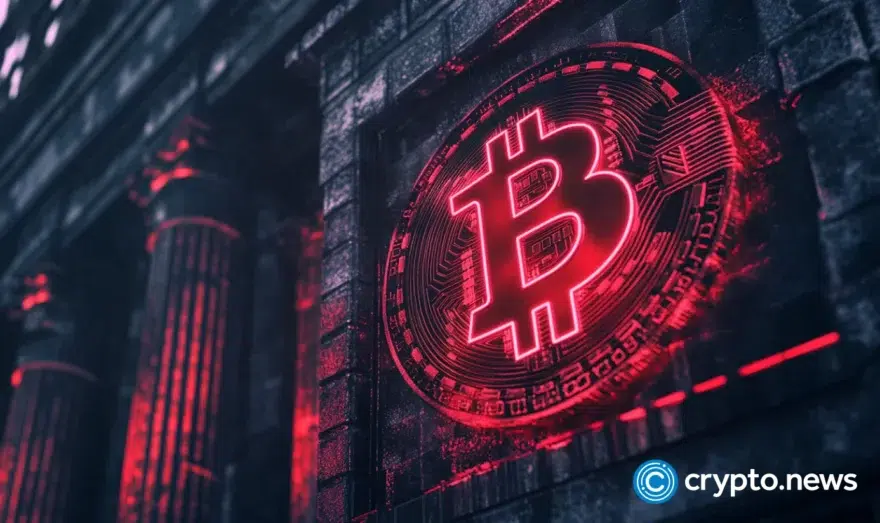Treasuries are stacking Bitcoin: PR gimmick or solid strategy?

As Bitcoin continues its rise into mainstream finance, a growing number of public companies are adding the cryptocurrency to their treasuries — but not without controversy.
While firms like MicroStrategy and Metaplanet are going all-in on Bitcoin (BTC) accumulation, others are cautiously experimenting, often as a hedge against inflation, rising interest rates, and fiat debasement. Yet critics warn that many of these companies are financially shaky, using the coin more as a speculative lifeline than a strategic asset.
Analysts are split between seeing this trend as forward-thinking financial engineering or a “dumpster fire.” The rise of corporate Bitcoin treasuries reflects both the promise and peril of crypto’s expanding influence in global capital markets.
According to BitBo, as of June 6, over 70 public companies were holding Bitcoin. It’s understood that companies like Strategy and Metaplanet are fully dedicated to accumulation. However, some other corporations are dipping their toes into Bitcoin stacking while continuing to work in a different sphere.
‘Dumpster fire in the making’
Journalist and analyst Sean Williams expressed his concerns over the possible failure of the Bitcoin treasury companies, citing the lack of innovation and operational success as the drivers of the potential bust. He called the BTC treasury hype a “dumpster fire in the making.”
He pointed out that many companies resorting to launching a BTC treasury are not profitable in the first place, so they try to make quick money out of crypto volatility. This emphasizes their weaknesses. Strategy’s stock performance was one of the worst in February 2025.
He named several instances when the BTC price saw significant downfalls as an example of the potential risk for such companies. On top of that, Williams sees the scarcity and 21 million hard cap narratives as “mythical” due to the potential possibility of changing the BTC limit. Technically, it’s not impossible. When BlackRock outlined such a possibility in the company’s educational animation, the reaction from Bitcoin maximalists was antagonistic.
Coin Bureau founder Nic Puckrin on X expressed doubts that the “random” companies launching Bitcoin treasuries won’t sell their BTC in the bear market. Thus, he brings up these companies’ alleged superficial engagement in Bitcoin and warns about the potential harm to the crypto market.
Why adopt BTC treasuries?
While some veterans could get annoyed by seeing their favorite crypto gets “appropriated” by the new players with money, the reasons for adopting corporate Bitcoin treasuries have strong macroeconomic grounds.
In an in-depth study, Fidelity analysts note that the last five years saw an increase in publicly traded companies that allocate part of their capital in Bitcoin, which is seen as a hedge against increasing fiscal deficits, fiat currency debasement, and risks associated with geopolitical turbulence.
Fidelity emphasizes that this approach is unorthodox for big companies, as in previous decades, they held their funds in low-risk assets, such as bank deposits or treasury bills. According to Fidelity, the growing economic uncertainty undermined trust in traditional strategies.
Corporate treasuries’ need for uncorrelated capital grew in the 2020s as interest rates hit high, reducing liquidity and cash flows. However, if the interest rate drops, the yields of companies having substantial reserves of traditional funds will also go down.
The study calls the response to COVID-19 “unprecedented” as the cumulative stimulus payments of the biggest economies amounted to $10 trillion, which is three times higher than during the 2008 crisis period. Inflation rates surged, causing a decline in corporate treasuries’ purchasing power.
These factors made many investors look for new solutions, and soon many, including public companies, saw a solution in Bitcoin. Given that the regulations in the EU and the U.S. have been Bitcoin-friendly, investors started to accumulate digital assets with more confidence.
The study mentions such regulations including:
- The Securities and Exchange Commission’s approval of Bitcoin ETFs
- The EU’s MiCA framework adoption
- The Financial Accounting Standards Board’s rule change from 2023, which allowed Bitcoin holding companies to account for and represent value in their financial statements more precisely. Considering the ascending Bitcoin price, it made companies’ balance sheets look stronger.
As Bitcoin has been resistant to demand shocks and could serve as a financial cushion in the long run, it promised benefits for companies adding the coin to their balance sheets. According to Fidelity, Bitcoin can help companies survive the monetary debasement policy of central banks due to its verifiable scarcity.
Analysts generally note that Bitcoin’s long-term price appreciation was one of the main reasons for its popularity among corporations. The study names the companies pioneering allocation: The Block, MicroStrategy, Stone Ridge Holdings Group, and Selmer Scientific.
‘Crash test’
FOMO and game theory are often mentioned when people discuss reserves.
These reserves cut the live liquidity, increasing an asset’s deficit on the markets while not necessarily pumping the price (as people quickly got used to “bullish” announcements).
The trend is pretty young, and it needs to undergo a crash test so we can see if the companies stacking bitcoins are not the “tourists.”

















